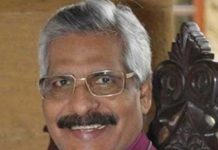Media is subject to responsibility and it should abide by its ethics in the form of self-imposed restrictions and self-regulation. It should keep in view religious values, norms and traditions of a society. Pakistani electronic media is enjoying overwhelming freedom since the year 2001. This freedom unfortunately is without the sense of responsibility and following any code of ethics. There is no doubt that the media has contributed undoubtedly in society according to its basic functions of information, awareness and education of the people.
The cut throat competition to break the news first and giving coverage to terrorists or serving their agenda consequentially is making the role of media pessimistic in society. Take the example of the US media despite having information about Raymond Davis did not report any news against him, keeping in view their national interest. Unfortunately in Pakistan, the situation is completely different. With the passing of the terrorist act of 16/12 in the Army Public School Peshawar, the government and the army leadership decided to award capital punishment to all convicts. Many television channels hurriedly started broadcasting reports on the availability of such convicts in various jails across the country. Media policymakers did not even bother to take care of the fact that actually disclosing information on such a delicate issue would create law and order problems in all prisons and the country as a whole. The television channels even tried to thwart their competitor channels in reporting what were the security updates in prisons and the number of deployment of security personnel and commandos in the prisons. In this case the media channels accidently served the terrorists who always make efforts to get their men freed from jails. The quick news bulletins and breaking news on such information is still continuing on all the news channels. This information through the media encourages the terrorist to plan skillfully terrorist activities.
Some channels even went to the extent of claiming that they were reporting and showing footage first of all as the death toll of schoolchildren was increasing. This is completely a non-qualified attitude. Terrorists open heartedly claimed the responsibility of Peshawar incident and other terror activities in the country. This claim of the responsibility is also broadcast through national media and sometime video footage messages of terrorists are on-aired serving the interest of the terrorists. Our media is providing free advertisement to the radicals and terrorists serving their interests. This has now to be regulated by a media code of ethics.
It has been observed all television channels broadcast crime stories. Some car thieves who were arrested during their criminal activity red handed admitted that they learnt how to break China lock of car staring. Frequent meeting with the media managers and content controllers may help in making the media more responsible. By law a seat of Ombudspersons be established in all media channels to listen to complaints. The role the Pakistan Electronic Media Regulatory Authority (PEMRA) must be activated in a practical manner. The media has to be assessed of its responsibility and behave in a decent manner keeping in view the awareness of time. The media persons should not to serve the agenda of the terrorists indirectly by broadcasting all types of information. In UK 50 percent of terrorism was controlled through discouraging media coverage of such happenings. Instead of shedding crocodile tears for the sake of rating, the media personnel must spread awareness against terrorism in a very professional manner. About seven already formulated codes of ethics of press were circulated among media experts. However, to date, no consensus code of conduct has been made public by the ministry. There are patriotic elements in electronic media who are aware of their national responsibilities; there are others who have become bold as a result of the latest media freedom. They refer to the Article 19 of the Constitution regarding ‘the right to freedom of speech, expression and the press’. They disregard ‘reasonable restrictions imposed by law in the interest of integrity, security or defence of Pakistan’. Today, the electronic media’s role must be to inform the people, to create awareness, to build public perception or mould the public opinion with a view to creating unity and boosting the morale of the people when faced with crisis or challenges. Pakistani Constitution’s Article 19 says: “Every citizen shall have the right to freedom of speech and expression, and there shall be freedom of the press, subject to any reasonable restrictions imposed by law in the interest of the glory of Islam or the integrity, security or defence of Pakistan”. Those intellectuals who have love of the so called Indian democracy should read Article 19(1) (a) of the Constitution of India. This article guarantees the fundamental right to freedom of speech and expression, but in accordance with Article 19(2), this right has been restricted by law only in the “interests of the sovereignty and integrity of India, the security of the State, friendly relations with Foreign States, public order, decency or morality or in relation to contempt of court, defamation or incitement to an offence.” Media in the past had played a vital role during Pakistan movement in uniting the Muslims of the subcontinent. It was because of this unity that Muslims of the undivided India were able to create a separate homeland under the dynamic leadership of Quaid-i-Azam. During 1965 war the media had made an exemplary contribution towards uniting the nation and encouraging the morale of the armed forces.
The result was that Pakistan could resist and brush-off attack by India which was much larger in size and having vast economic resources. At this critical time when Pakistan is encountering challenges to its internal and external security, Pakistani media men should rise to the occasion and play its role to counter bitter Indian propaganda and protect national interests. They should disclose antiPakistani elements in their affiliation and influence them to correct their orientation. Feelings of brotherhood, love and affection, awareness should be raised among the people against terrorism through mobile SMS service, cable network. For the purpose, contents of media reports must be properly monitored and strongly censored prior to broadcast. Media must follow a code of conduct and journalistic ethics, as envisaged by the profession of journalism and in accordance with the national interests. The electronic media should indicate that terrorists are weak; therefore, they undertake heinous missions secretly. Media must exploit their openness by projecting their weak worth. It should not be allowed to conduct selective coverage of events such as showing mutilated bodies, severely injured people, destruction of property and brutally smashed scenes of surrounding. Besides, in crisis situation, lives are at risk. In this connection, media should not disclose names of victims, vital locations, security forces etc. It is also duty of media to create and maintain sense of hope among domestic audience, especially when the operation is still going on.
Media anchors and analysts must point out that Islam considers killing one innocent person equal to murdering the entire humanity, while Jihad is a spiritual obligation, but its real spirit needs to be understood clearly, as killing innocent women and children is not Jihad. They should also indicate that by playing in the hands of anti Pakistan foreign countries, especially Indian secret agency RAW, the TTP and its banned affiliated groups are defaming Islam.
Sign in
Welcome! Log into your account
Forgot your password? Get help
Password recovery
Recover your password
A password will be e-mailed to you.







